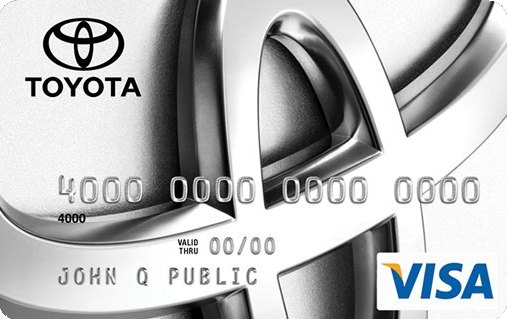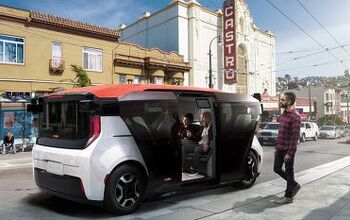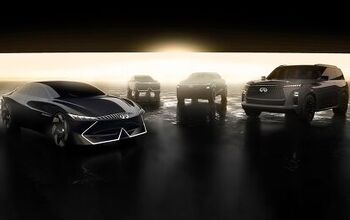Toyota Class-Action Lawsuits "A Little Cottage Industry Of Its Own"
The legal angle to the Toyota recall story has been a source of constant amusement, from an early attempt to prevent Toyota from enacting its gas pedal fix, to news today [via Reuters] that at least 30 class-action suits have been filed since the recall began. “This is going to a little cottage industry all of its own,” says Matt Cairns of DRI, the Voice of the Defense Bar, the largest U.S. civil defense attorney association.
“As this issue gets more attention, Toyota owners who had accidents in the past few years are going to wonder if those accidents were caused by unintended acceleration,” says one lawyer with Firestone scandal experience under his belt. “At some point, Toyota may have to decide to settle out of court. It’s far more expensive to go to court and would prolong the pain for Toyota and many families.”
We’ve already documented suits alleging that Toyota’s electronic throttle control lacks failsafes, but according to the lawyers in the Reuters piece, suits are being filed for everything from lost resale value to violation of warranty terms caused by selling faulty vehicles, to concealment of known defects ( including the Prius brake issue). “There is a very minuscule percentage of vehicles actually experiencing unintended acceleration,” says another lawyer. “But that will not prevent people from filing lawsuits against Toyota.”
More by Edward Niedermeyer
Latest Car Reviews
Read moreLatest Product Reviews
Read moreRecent Comments
- Redapple2 Love the wheels
- Redapple2 Good luck to them. They used to make great cars. 510. 240Z, Sentra SE-R. Maxima. Frontier.
- Joe65688619 Under Ghosn they went through the same short-term bottom-line thinking that GM did in the 80s/90s, and they have not recovered say, to their heyday in the 50s and 60s in terms of market share and innovation. Poor design decisions (a CVT in their front-wheel drive "4-Door Sports Car", model overlap in a poorly performing segment (they never needed the Altima AND the Maxima...what they needed was one vehicle with different drivetrain, including hybrid, to compete with the Accord/Camry, and decontenting their vehicles: My 2012 QX56 (I know, not a Nissan, but the same holds for the Armada) had power rear windows in the cargo area that could vent, a glass hatch on the back door that could be opened separate from the whole liftgate (in such a tall vehicle, kinda essential if you have it in a garage and want to load the trunk without having to open the garage door to make room for the lift gate), a nice driver's side folding armrest, and a few other quality-of-life details absent from my 2018 QX80. In a competitive market this attention to detai is can be the differentiator that sell cars. Now they are caught in the middle of the market, competing more with Hyundai and Kia and selling discounted vehicles near the same price points, but losing money on them. They invested also invested a lot in niche platforms. The Leaf was one of the first full EVs, but never really evolved. They misjudged the market - luxury EVs are selling, small budget models not so much. Variable compression engines offering little in terms of real-world power or tech, let a lot of complexity that is leading to higher failure rates. Aside from the Z and GT-R (low volume models), not much forced induction (whether your a fan or not, look at what Honda did with the CR-V and Acura RDX - same chassis, slap a turbo on it, make it nicer inside, and now you can sell it as a semi-premium brand with higher markup). That said, I do believe they retain the technical and engineering capability to do far better. About time management realized they need to make smarter investments and understand their markets better.
- Kwik_Shift_Pro4X Off-road fluff on vehicles that should not be off road needs to die.
- Kwik_Shift_Pro4X Saw this posted on social media; “Just bought a 2023 Tundra with the 14" screen. Let my son borrow it for the afternoon, he connected his phone to listen to his iTunes.The next day my insurance company raised my rates and added my son to my policy. The email said that a private company showed that my son drove the vehicle. He already had his own vehicle that he was insuring.My insurance company demanded he give all his insurance info and some private info for proof. He declined for privacy reasons and my insurance cancelled my policy.These new vehicles with their tech are on condition that we give up our privacy to enter their world. It's not worth it people.”


































Comments
Join the conversation
“At some point, Toyota may have to decide to settle out of court. It’s far more expensive to go to court and would prolong the pain for Toyota and many families.” ....or in other words, "We have no hard evidence to prove negligence on Toyota's part, but the lack of tort reform in the US allows us to to legally blackmail corporations for huge settlements." Lawyers are not in this because they care about the little guy.....been there, done that, paid my money, I lose, they always win.
Bertel had a comment in a thread in the last week or two that I'd like to see him reprint here. He talked about the much higher cost of liability insurance for products shipped to the US or Canada - if coverage was available at all - and the lower lawyer fees in most European countries on product liability cases. But then he mentioned the much greater pre-sale regulation in those countries. They don't have the product liability lawsuits in large part because they prevent bad products and practices from reaching the market in the first place. A great example is the infamous McDonald's coffee case. You don't see cases like that in Europe because it would be a criminal act for a restaurant to serve coffee at a temperature that would cause third-degree burns. In most European countries that would put a restaurant manager in jail the first time it happened. Here it took several hundred incidents before McDonald's ran into a civil case that went to trial and publicly exposed their practices. Bertel noted that companies are exempt from product liability if their product was tested before production by one of the government agencies like the TUV. Anyone screaming about tort reform ready to trade for that? The idea that a trial lawyer can pull a summons from his pocket and a large company will fork over cash is a fairy tale. A company like Toyota can spend ten million dollars on pre-trial motions and procedures in one case and it's a rounding error on their bottom line. How many lawyers can put five or ten million dollars of their own money to pay the pre-trial expenses? The most popular and effective way for a corporate defendant to beat a product liability case is to keep the case out of court as long as possible. The goal is to make the case so expensive to the plaintiff's lawyer that he or she either drops it or settles on terms that are favorable to the defendant. If the case gets to trial, it's an equally large myth that juries are just waiting to hand over seven and eight figure settlements to anyone at the plaintiffs table. The character of the plaintiff is on trial as much as the actions of the defendant. It's not just enough to show that a company put a faulty product on the market that caused injury or death. You have to show that they knew the product was bad and ignored warnings. Again, the McDonald's coffee case went so badly for McDonald's because there were hundreds of prior burn incidents reported to the company and they refused to change their practices because keeping the coffee at 190 degrees meant they didn't have to make a fresh pot as often. If a company actually manages to lose at trial and a big judgment is awarded to the plaintiff, there is a decade or so of appeals at their disposal, and appellate judges almost always cut punitive damages substantially. When you see a company consistently settle before trial, it's because they want to keep things out of the public record. Ford and Firestone used this strategy for years in the Explorer rollover cases. Settling early and requiring a confidentiality agreement as part of the settlement keeps everything learned in discovery off the record and out of the public eye, like recommending lower tire pressure to improve the ride even though it greatly increased the risk of tire failure.